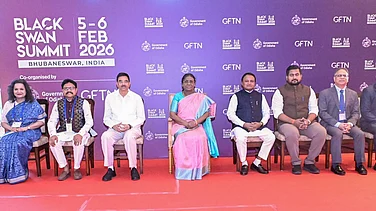With just a week remaining for the Modi-led government's final budget for its second term, the healthcare industry is advocating for streamlining GST policies for healthcare startups and strengthening healthcare frameworks for patents and business continuity.
In the Union Budget for 2023-24, the health sector received Rs 89,155 crore, marking a nearly 13 per cent increase from the previous year's allocation of Rs 79,145 crore. While the boost was marginal, industry leaders are calling for a more substantial increase in healthcare sector expenditure, with a particular focus on healthcare infrastructure.
P V Shyam Sunder, Director, Evolv28, believes that the provision of financial support for the integration of emerging technologies, including AI and telemedicine, along with investments in digital infrastructure, cybersecurity, and data protection, constitutes pivotal components in alignment with the objectives of the National Digital Health Mission.
"We anticipate the creation of innovative healthcare models that harness technology and skilled labor, with the goal of achieving cost-effectiveness and broad accessibility across income levels," he added.
Last year's Economic Survey highlighted the need for a boost in healthcare spending, forecasting an increase from 2.1 per cent to more than 2.5 per cent of the GDP by the year 2025. The modest rise might include the adoption of a more holistic and inclusive approach.
"In building a strong and inclusive healthcare system, alternative healthcare sectors are vital. With a holistic focus, alternative medicine emphasizes preventive healthcare through lifestyle changes, stress reduction, and natural therapies, promoting holistic well-being with an individualized approach, "said Mukesh Batra, Founder & Chairman of Dr. Batra’s. "Our perspective needs to be broadened to encompass healthcare insurance, medical supplies, telemedicine, and medical tourism as well."
However, inflationary pressures have set a major hurdle for the industry both at individual and corporate levels. P V Shyam Sunder believes that there is a need for the introduction of favorable policies to tackle inflation concerns, including actions like reducing customs tariffs on raw materials, removing the extra 5 per cent health cess, and strengthening export incentives under the RoDTEP (Remission of Duties and Taxes on Exported Products) system.
The RoDTEP scheme aims to offset the taxes and duties on exported goods that are not otherwise credited, remitted, or refunded in any way.
"Simplifying compliance burdens, application procedures, supervisory regimes, lending structures, assuring pricing transparency, and easing cross-border commerce will boost local manufacturing, R&D, and address supply chain difficulties in the health-tech sector," he said.




























